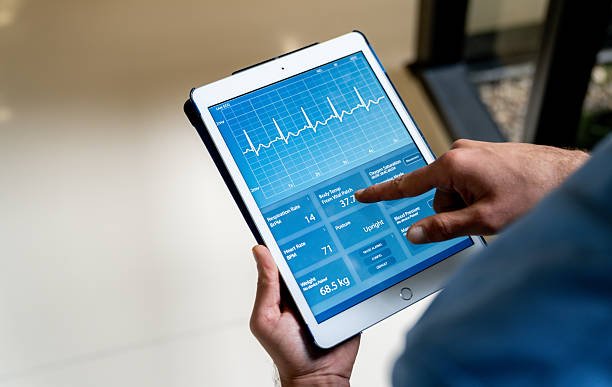“ Eat for your metabolism.” It sounds simple, but most people don’t actually know what their metabolism needs.
At Kairos Integrative Care, we see this every day. You might be eating clean, exercising, and following mainstream advice, and still feel off. Fatigue, stubborn belly weight, cravings, and mood swings can all point to one thing: carb sensitivity and metabolic imbalance.
This isn’t about guessing or chasing trends. It’s about understanding your metabolic type and using real data to guide nutrition, balance blood sugar, and reduce inflammation.
What Is Carb Sensitivity and Could You Have It?
Carb sensitivity means your body doesn’t handle carbohydrates efficiently. Even if you aren’t diabetic, your blood sugar may spike easily or stay elevated longer than ideal.
Wondering if this applies to you? Here’s a simple checklist:
- Do you crash or get sleepy after meals?
- Do you often crave sugar, bread, or snacks between meals?
Do you carry most of your weight around your belly? - Have you been diagnosed with PCOS or prediabetes, or do they run in your family?
- Do you get shaky, “hangry,” or irritable if you go too long without food?
- Do you rely on caffeine or sugar to get through your day?
If you nodded yes to more than one, your metabolism may not be handling carbs efficiently. Lab work helps confirm what they’re pointing to.
Why Functional Medicine Goes Beyond Standard Labs
Traditional labs focus on diagnosing disease, but what if you could detect stress in your metabolic system before you cross into disease territory? That’s what functional medicine does best. Instead of asking “Are you sick?” we ask, “Where are things starting to slip?” and “How can we restore balance early?”

You don’t need to wait for a diagnosis. With the right tools, you can catch insulin resistance in its earliest stages, support your hormones, and improve how your body responds to food, without guessing.
Key Lab Tests to Identify Your Metabolic Type & Carb Sensitivity
Here’s what we often run at Kairos Integrative Care to help uncover your true metabolic needs:
1. Fasting Insulin & Glucose
Do you crash after meals or wake up already tired? These basic labs offer key insight into how your body manages blood sugar, even if your A1C is normal.
- Fasting glucose: Ideally between 75–85 mg/dL
- Fasting insulin: Optimal is under 8 uIU/mL
- HOMA-IR (Insulin Resistance Score): Should be under 1.5
These numbers help us detect hidden insulin resistance, often the root of fatigue, weight gain, PCOS, and carb cravings.
2. HbA1c (Hemoglobin A1C)
A1C measures your blood sugar trends over the past 2–3 months. Even if your level is considered “normal” by conventional standards, it might be hiding dysfunction. Chronic inflammation, stress, or anemia can throw it off, giving a false sense of security. That’s why we always cross-reference this with other markers. Its normal range is <5.7%, but we look for optimal ranges and context.
3. Triglyceride-to-HDL Ratio
This is an underrated, powerful marker of insulin sensitivity. Its high ratio suggests that carbs are disrupting your blood sugar and cholesterol balance. Ideally, your ratio should be below 2:1 (e.g., Triglycerides 100 / HDL 50)
4. Comprehensive Metabolic Panel (CMP)
A standard CMP checks your blood sugar, kidney function, and liver enzymes. We look for patterns that reveal early signs of metabolic inflexibility. Your liver is central to glucose regulation and hormone metabolism, so it’s a key piece of the puzzle.

We look at ALT, AST, and fasting glucose to catch early signs of fatty liver or glucose stress.
5. Advanced Lipid Testing
If you’re carb-sensitive, you’re more likely to have small, dense LDL particles. These are more inflammatory and increase your risk for cardiovascular disease.
That’s why we often go beyond the basic cholesterol panel to look at:
- ApoB
- LDL particle number (LDL-P)
- Small dense LDL
These markers help us assess how carbs affect your lipid profile.
6. Optional Functional Tests
We may recommend deeper labs for women with complex symptoms or hormone imbalances:
- CGM (Continuous Glucose Monitor): Tracks real-time blood sugar throughout the day
- DUTCH Test: Reveals cortisol and hormone patterns impacting blood sugar
- Organic Acids Test (OAT): Evaluates mitochondria, B-vitamin function, and carb metabolism
These functional tests connect the dots between symptoms and root causes.
What Happens If You’re Carb Sensitive?
Once we know how your body responds to food and stress, we create a plan that’s built around your data, not diet trends.
This might include:
- Shifting your macros (e.g., lower carb, higher protein)
- Strategic use of supplements (berberine, magnesium, inositol)
- Meal timing adjustments (maybe time-restricted eating or balanced snacks)
- Support for liver detox pathways and mitochondria

We also track how your numbers change over time, so you know it’s working.
What’s Your Metabolic Type?
Instead of guessing, here’s what you can ask yourself:
- Do I crash after eating certain foods?
- Are my cravings controlling me, or can I go hours without thinking about food?
- Is my energy predictable throughout the day, or am I always fighting fatigue?
- Have labs ever shown “borderline” blood sugar, cholesterol, or liver enzyme issues?
These questions help you connect the dots and decide whether it’s time to test, not guess.
Ready to Understand Your Metabolism?
If you’re tired of guessing what your body needs—or why your energy, cravings, or weight just don’t feel in sync—it’s time for real answers. At Kairos Integrative Care, our providers like Lola bring deep expertise in functional medicine, hormone balance, and metabolic health. She combines advanced testing with personalized care to help you feel like yourself again, without the guesswork.
We work with patients in Houston, Sugar Land, and surrounding areas, including zip codes 77046 and 77478, and accept most major insurance plans.
Book your appointment today and take the first step toward metabolic clarity.




